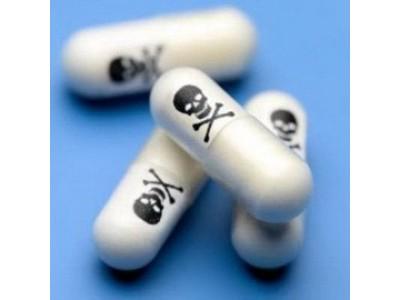 Bipolar disorder is one of the best studied disorders of the psyche. Not long time ago, it carried a much more frightening name, "manic-depressive psychosis." We will try to explain why this diagnosis has little to do with maniacs, how dangerous an uncontrolled emotional upsurge is and what makes lives of people with this illness miserable.
Bipolar disorder is one of the best studied disorders of the psyche. Not long time ago, it carried a much more frightening name, "manic-depressive psychosis." We will try to explain why this diagnosis has little to do with maniacs, how dangerous an uncontrolled emotional upsurge is and what makes lives of people with this illness miserable.
The term "manic-depressive psychosis" was coined at the end of the XIX century, but after a more detailed study of the issue, it became clear that this definition has outdated. Subsequently, the term "manic-depressive psychosis" was replaced by a much more politically correct "bipolar affective disorder". The former formulation was abolished because of its stigmatizing influence the word "maniacal" in the majority consciousness is associated with maniacs, and bipolar disorder is by no means the most popular diagnosis among serial killers (most Dexter’s colleagues have signs of psychopathy or dissociative personality disorder).
Bipolar disorder diagnosis is rather difficult: from 1% to 7% of the world’s population suffer from it. It is quite diverse there are two subspecies of this illness, plus a softer version cyclothymia. What is bipolar disorder and what is a typical behavior of people with it?
A person suffering from this illness cannot control his or her mood: at times this person feels very energetic, but this isn’t always appropriate and rarely turns out to be productive. Sometimes the same unfounded decline happens: the patient suddenly wakes up broken, weak, tired and loses the meaning of life. In the intervals between phases, the patient can feel normal and if the positive period lasts long enough (it can last up to 7 years), the person sometimes begins to forget that there was a place for such a disorder in life. In general terms, these are bipolar disorder symptoms.
One of the main problems with this kind of lottery of moods is that the number of phases and their order are unpredictable, and besides, the illness can manifest only in manic, only in hypomaniacal (more mildly expressed mania) or only in depressive phases. The duration of these periods ranges from several weeks to 1.5-2 years (an average of 3-7 months), while the manic or hypomanic phases are on average three times shorter than depressive. Usually medical professionals prescribe special medications designed to control unpredictable mood swings, such as Lamictal Dispersible and others.
The hypomanic phase is difficult to recognize as a mental abnormality without bipolar disorder testing, because it is perceived by a sick person as a completely innocent boost of energy and an increase in mood. A person feels a spiritual uplift and a confidence in their abilities, demonstrates a keen interest in a variety of topics and is very motivated and ready for action. In this period the person is able to work intensively, without feeling tired and sleeps less, easily makes social contacts, being fun and sociable and shows great appetite for sex and entertainment. Such a state can only be envied, right? But it also has its dark side: the more vividly the phase manifests itself, the more difficult it is for a person to concentrate. In addition, the patient becomes too self-confident and may lose the ability to assess the situation sensibly. This person easily gets involved in a wide variety of occupations (including those aren’t particularly interesting for the diseased in the normal state), impulsively makes decisions, easily takes risks, is prone to lose money and thoughtlessly make promises.
At this stage strangeness in behavior can be indicated by relatives and friends, they might tell that something is wrong. But it’s unlikely that this thought would come across the patient’s mind, except for cases of obvious inconsistencies between the state and real circumstances: a prolonged causeless euphoria against job loss or break up with the lover should alert even a person not prone to reflection.
Anyway, a person with hypomania still can seem more or less normal and does not cause much inconvenience to the society. But at the stage of mania, the situation is completely out of control: the patient’s thoughts become similar to Brownian motion, there are delusions of greatness or insane ideas that the diseased wants to fulfill immediately, the patient can become irritable or aggressive and might make more than strange decisions. So this person continues to deplete own energy reserves, and the duration of sleep decreases to 3-4 hours a day. In this phase, it is quite uncomfortable for people to be anywhere near this individual.
After appropriate bipolar disorder tests in the presence of manic or mixed (when signs of mania and depression are combined) episodes the patient is diagnosed with "bipolar disorder 1", and if there is a history of only manifestations of hypomania then "bipolar disorder 2." The second option is considered less destructive, although some experts have doubts about this. In any case, doctors face a difficult task: to choose an individual method of treatment. Luckily, with every passing year this illness is better studied and new medicines appear. Their wide assortment is presented in a variety of conventional drugstores. As for the Internet, Italian online pharmacies sell the biggest assortment of these medications.
In either case, the patient will most likely periodically feel extremely depression. What is especially unpleasant is that the mood swings can swing in the opposite direction immediately after a positive phase: only yesterday, the person believed that his or her strength was unlimited, and today it seems impossible to get out of bed. At first, the general mental tone is weakened; work capacity decreases, sleep disturbances and anxiety arise. Gradually the darkness thickens: the patient falls into apathy, it becomes difficult to concentrate on the simplest things and he or she loses interest in everything that use to be important. This results in a feeling of a quiet despair, mixed with self-abasement. Motivating factors, even if they seem theoretically reasonable, cease to function. At the same time, a person can hide symptoms of bipolar disorder, not giving the surrounding people causes to worry. The most dangerous period, in terms of suicide risk, is the beginning or end of depression, because the mood id really bad, but there are enough energy to make some decisive action.




